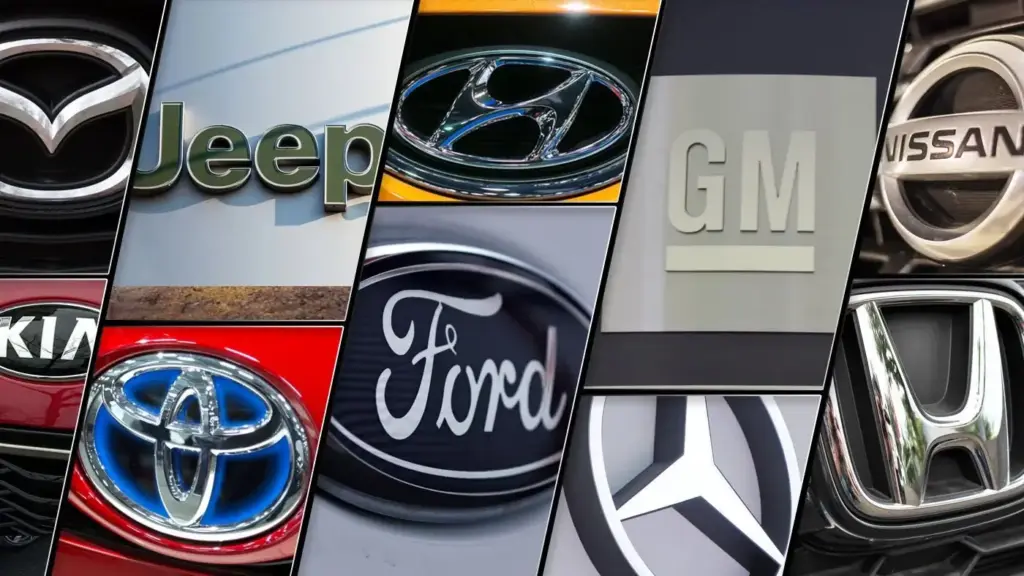Comparing car brands reliability in the U.S. market 2025
Reliability is a cornerstone of automotive satisfaction—fewer breakdowns, lower repair costs, and more peace of mind on the road. In 2025, U.S. drivers have an unprecedented array of car brands to choose from, spanning traditional gasoline models, hybrids, and electric vehicles.

This article evaluates the latest reliability data, helping you compare car brands across mainstream, luxury, and EV segments. By understanding survey results, recall histories, and warranty offerings, you’ll know which brands deliver the best long-term ownership experience.
Automakers invest heavily in durability testing, advanced manufacturing, and software updates to minimize failures.
Yet reliability can still vary widely between makes and models. We’ll delve into the metrics behind reliability scores, highlight the standout car brands of 2025, and answer common questions to guide your next vehicle purchase.
Table of Contents
Defining Reliability in the U.S. Market
Reliability isn’t just a buzzword—it encompasses:
- Mechanical Durability: Frequency of engine, transmission, and drivetrain failures.
- Electrical and Software Robustness: Infotainment glitches, sensor faults, and battery management issues in EVs.
- Recall and Service Bulletin Trends: How often a brand issues safety recalls or service campaigns.
- Warranty Coverage: Length and inclusions of bumper-to-bumper, powertrain, and hybrid/electric component warranties.
- Customer Survey Ratings: Owner-reported satisfaction with long-term dependability and repair costs.
Major studies like J.D. Power’s Vehicle Dependability Study (VDS) and Consumer Reports’ Reliability Rankings aggregate thousands of data points from real owners, offering a clear picture of how car brands fare over the first three years of ownership.
Mainstream Car Brands: 2025 Reliability Leaders
Toyota and Lexus
Toyota’s reputation for bulletproof engines extends to its luxury division, Lexus. In 2025:
- Toyota ranks highest among mass-market brands for reliability, with an average of 108 problems per 100 vehicles—well below the industry average of 134.
- Lexus leads luxury marques with just 88 problems per 100 vehicles. Its hybrid systems (e.g., in the RX Hybrid) show exceptional durability.
Key factors: Toyota’s conservative engineering, extensive pre-release testing, and streamlined parts commonality reduce failure points.
Honda and Acura
Honda’s efficient engines and rigid chassis design have earned strong marks:
- Honda posted 112 issues per 100 vehicles, excelling in compact and midsize cars like the Civic and Accord.
- Acura mirrors Honda’s reliability in the luxury segment, though its complex electronics in models like the MDX introduce occasional glitches.
Strengths: Honda’s VTEC engines and straightforward transmissions. Weaknesses: Infotainment systems sometimes require software updates.
Hyundai and Kia
South Korea’s Hyundai Motor Group continues its ascent with:
- Hyundai averaging 115 problems per 100 vehicles, notably improving over the past decade. The Elantra and Santa Fe show strong powertrain reliability.
- Kia almost neck-and-neck at 118 issues, with the Telluride SUV praised for mechanical robustness but critiqued for minor interior electronics faults.
Hyundai and Kia offset occasional infotainment bugs with industry-leading warranties: 5 years/60,000 miles bumper-to-bumper and 10 years/100,000 miles powertrain.
Ford, Chevrolet, and GMC
American brands present a mixed picture:
- Ford posts 140 problems per 100 vehicles, with strong truck reliability (F-150) but higher issues in the Ford Escape’s hybrid drivetrain.
- Chevrolet at 145 issues, shows durability in Corvette and Silverado, but smaller cars like the Malibu lag behind.
- GMC (similar to Chevrolet) records 142 problems, excelling in heavy-duty trucks.
Domestic strengths lie in body-on-frame trucks; consumer electronics and transmission problems still challenge some models.
Subaru, Nissan, and Volkswagen
- Subaru: 127 issues per 100 vehicles—Boxer engines are reliable but head gasket and CVT concerns persist.
- Nissan: 150 problems, with the Altima and Rogue showing moderate reliability; EV system issues in the Leaf require attention.
- Volkswagen: 155 issues, improved Dieselgate-era quality but still trails on infotainment and electrical reliability.
Luxury Car Brands: Reliability Rankings
Buick and Cadillac
General Motors’ premium marques surprise:
- Buick leads American luxury at 118 problems, driven by the Enclave’s solid engineering.
- Cadillac registers 125 issues, with the CT5 and XT5 praised for ride quality but hampered by tech glitches.
Genesis and Infiniti
- Genesis (Hyundai’s luxury arm) impresses at 100 problems, benefiting from Hyundai’s warranties and quality controls.
- Infiniti logs 130 issues, showing strength in engines but weakness in user interfaces.
German and British Icons
- Lexus (covered above) outshines all Asian and American luxury brands.
- BMW: 145 problems, powerful Yet complex engines and electronics raise failure rates.
- Mercedes-Benz: 150 issues, strong build but extensive features create more potential failure points.
- Audi: 155 problems, shares VW Group’s infotainment and fuel system concerns.
- Jaguar/Land Rover: 170+ issues, heritage styling overshadowed by electronics and drivetrain vulnerabilities.
Electric Vehicle Reliability: The New Frontier
Tesla
Tesla dominates EV sales, but reliability is mixed:
- Model 3: 120 issues per 100 vehicles, common door handle and trim fitment issues but robust battery systems.
- Model Y: 130 problems, benefiting from shared platforms with Model 3 but still experiencing software update bugs.
Tesla strengths: Over-the-air updates, extensive charging network. Weaknesses: Fit-and-finish, panel gaps.
Legacy OEM EVs
- Ford Mustang Mach-E: 110 problems, praised for mechanical reliability but infotainment demands early patches.
- Chevrolet Bolt EV: 105 issues, software recalls for battery defects improved by GM’s aggressive warranty policy.
- Nissan LEAF: 115 issues, aging platform shows strong battery life but electronics need refresh.
Brand Reliability FAQs
Should I avoid European luxury brands based on reliability?
If uptime and low service costs are critical, Asian luxury brands like Lexus and Genesis deliver superior dependability.
Why do Japanese brands top reliability charts?
Their engineering philosophy prioritizes durability and simplicity over cutting-edge features, reducing potential failure points.
Does a higher reliability score guarantee a perfect vehicle?
No—the scores reflect averages. Individual experiences can vary based on maintenance, climate, and driving style.
Are EVs inherently more reliable than ICE vehicles?
EVs have fewer moving parts—no oil changes or complex transmissions—but depend heavily on software and battery management systems.
How much does warranty influence reliability perception?
Generous warranties (Hyundai/Kia) incentivize meticulous engineering and offer owners peace of mind for unforeseen repairs.
Tips for Maximizing Reliability
- Follow Manufacturer Service Schedules: Adhere to oil, filter, and brake fluid change intervals—many reliability issues stem from neglected maintenance.
- Choose Top Tier™ Fuel: Helps prevent injector and combustion chamber deposits.
- Monitor Recalls and TSBs: Sign up for email alerts from NHTSA and your automaker’s website.
- Invest in Extended Warranties: For brands with moderate reliability, extended coverage can mitigate repair costs.
Conclusion
In 2025’s U.S. market, top-ranked car brands for reliability include Toyota, Lexus, Honda, and newcomer Genesis in mainstream and luxury segments. EVs like the Bolt and Mach-E are closing the gap, while Tesla leads in innovation yet faces quality consistency challenges. Domestic trucks remain strong mechanically but lag in electronics. By weighing reliability data, warranty offerings, and personal driving needs, buyers can select a vehicle that minimizes downtime and repair costs—ensuring confidence on every journey.
Sources and Inspirations:
This analysis draws on J.D. Power’s 2025 Vehicle Dependability Study, Consumer Reports’ Annual Reliability Survey, NHTSA recall data, and owner feedback from Edmunds and Kelley Blue Book.
